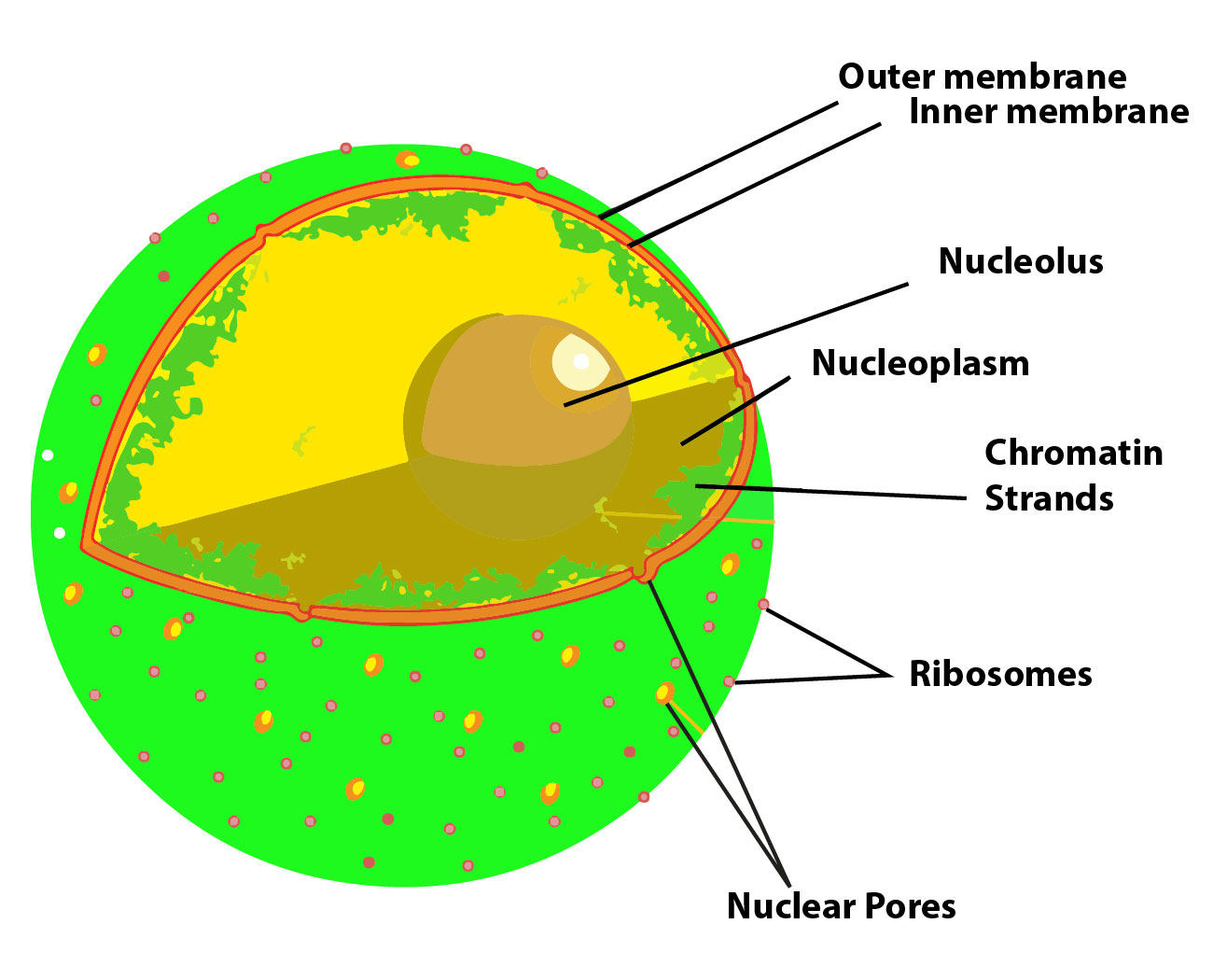
What are the nuclear pores? State their function.
Answer
520.2k+ views
Hint: A nuclear pore is a part of a large complex of proteins, referred to as a nuclear pore complex that spans the nuclear envelope, which is the double membrane surrounding the eukaryotic cell nucleus.
Complete answer:
Nuclear pores are tiny holes present within the nuclear membrane of the nucleus. They are evolved through the fusion of two nuclear membranes.
These holes allow particular substances to be transferred into a cell and out from it. They allow molecules like RNA and proteins to maneuver in both directions, between the nucleus and the cytoplasm.
Additional Information: Nuclear pore complexes permit the transport of molecules across the nuclear envelope. This transport includes RNA and ribosomal proteins moving from the nucleus to the cytoplasm and protein, carbohydrates, signaling molecules, and lipids moving into the nucleus. It is important that the nuclear pore complex can actively perform 1000 translocations per complex per second. Although smaller molecules simply diffuse through the pores, larger molecules could also be recognized by specific signal sequences then be diffused with the assistance of nucleoporins into or out of the nucleus. It has been lately shown that these nucleoporins have particular evolutionary conserved features translated in their sequences that provide insight into how they regulate the transport of molecules through the nuclear pore.
Note: Many higher eukaryotic cells have as many as 2,000 nuclear pore complexes in the nuclear membrane of each cell. This membrane or envelope maintains the DNA safely and carries it within the nucleus. Despite the presence of this barrier, communication still has to happen between the nucleus and the cytoplasm, therefore the nuclear pores function the transportation and communication channels.

Complete answer:
Nuclear pores are tiny holes present within the nuclear membrane of the nucleus. They are evolved through the fusion of two nuclear membranes.
These holes allow particular substances to be transferred into a cell and out from it. They allow molecules like RNA and proteins to maneuver in both directions, between the nucleus and the cytoplasm.
Additional Information: Nuclear pore complexes permit the transport of molecules across the nuclear envelope. This transport includes RNA and ribosomal proteins moving from the nucleus to the cytoplasm and protein, carbohydrates, signaling molecules, and lipids moving into the nucleus. It is important that the nuclear pore complex can actively perform 1000 translocations per complex per second. Although smaller molecules simply diffuse through the pores, larger molecules could also be recognized by specific signal sequences then be diffused with the assistance of nucleoporins into or out of the nucleus. It has been lately shown that these nucleoporins have particular evolutionary conserved features translated in their sequences that provide insight into how they regulate the transport of molecules through the nuclear pore.
Note: Many higher eukaryotic cells have as many as 2,000 nuclear pore complexes in the nuclear membrane of each cell. This membrane or envelope maintains the DNA safely and carries it within the nucleus. Despite the presence of this barrier, communication still has to happen between the nucleus and the cytoplasm, therefore the nuclear pores function the transportation and communication channels.

Recently Updated Pages
Master Class 11 Computer Science: Engaging Questions & Answers for Success

Master Class 11 Business Studies: Engaging Questions & Answers for Success

Master Class 11 Economics: Engaging Questions & Answers for Success

Master Class 11 English: Engaging Questions & Answers for Success

Master Class 11 Maths: Engaging Questions & Answers for Success

Master Class 11 Biology: Engaging Questions & Answers for Success

Trending doubts
One Metric ton is equal to kg A 10000 B 1000 C 100 class 11 physics CBSE

There are 720 permutations of the digits 1 2 3 4 5 class 11 maths CBSE

Discuss the various forms of bacteria class 11 biology CBSE

Draw a diagram of a plant cell and label at least eight class 11 biology CBSE

State the laws of reflection of light

Explain zero factorial class 11 maths CBSE




